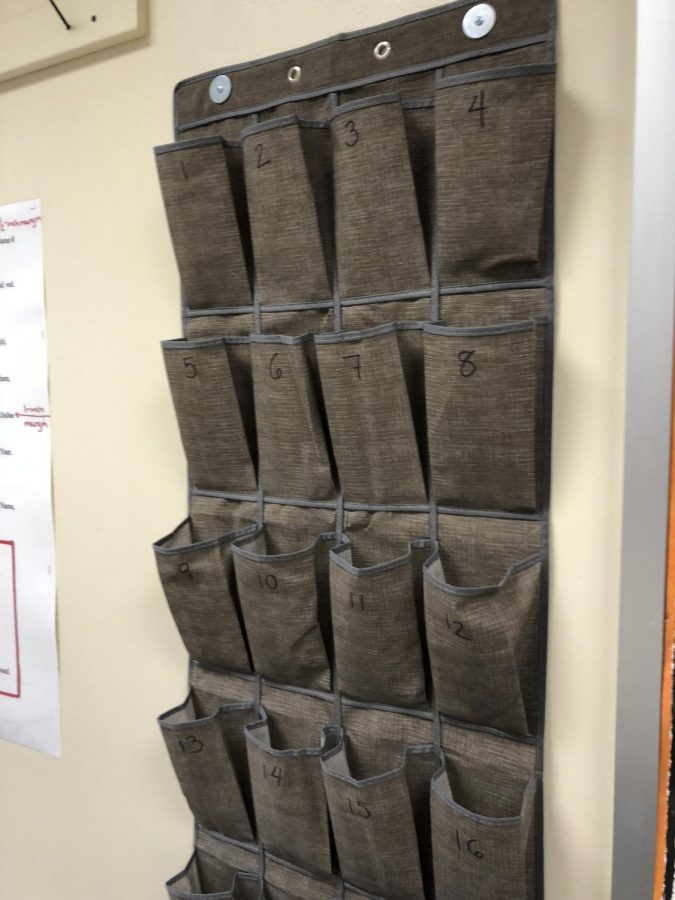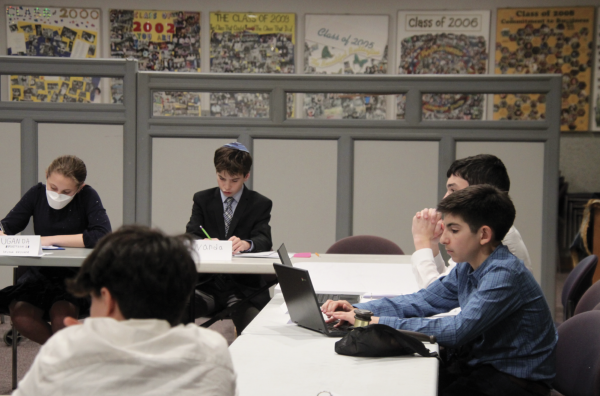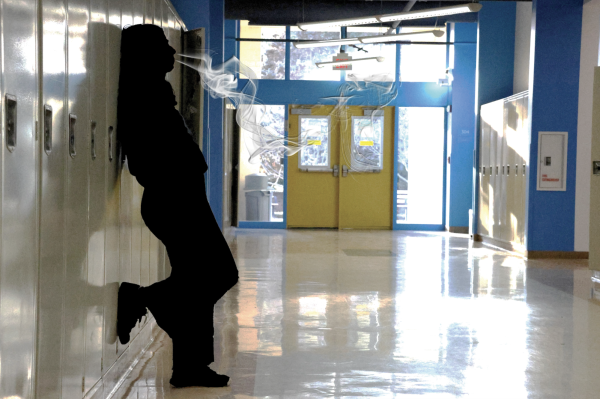Administration implements new, more restrictive phone policy
New makeshift cell phone holders hang in the back of every classroom for students to place their devices. If a student is seen with their phone in class not in the holder, they will have it taken from them until the end of the school day.
September 26, 2018
At the start of the 2018-2019 school year, the CESJDS administration implemented a new cell phone policy for all high school students. Before each class period, students are mandated to put any cell phones with them into a makeshift phone rack hung at the back of every classroom. Although cell phones are not permitted to be used during class time, they are still allowed during passing times between classes, as well as community time and lunch.
This is the first time JDS has ever implemented a policy such as this. Two years ago, teachers were given the option to regulate students’ cell phone use in class by placing a cell phone box or rack in their classes, but now “it’s the first time it’s across the board,” High School Principal and Associate Head of School Dr. Marc Lindner said.
“The primary goal of the new policy is for students to be focused on learning in the classroom and not be distracted by their phones, and I think there’s been a lot of progress with that,” Lindner said.
If a teacher finds that a student’s phone is in class but not in the phone rack, they are required to confiscate the phone and give it to the front office to be returned at 3:45 p.m.
Jewish History teacher Dan Rosenthal said that he has noticed more participation and greater focus from his students since the school year began. However, not all students agree that the policy is beneficial.
“I think that you need to learn how to cope with having your phone with you all the time because college isn’t going to have a phone rack. You need to learn how to restrain yourself from using your phone,” junior Sarah Edery said.
Edery mentioned that many students forget to take their phones out of the rack, which has been a cause of frustration. Although there are some distinguished drawbacks with the policy, Rosenthal contends that it is overall positive.
“In terms of implementation of the policy, I think that’s up for debate about whether the approach with the holders is the ideal approach, but in terms of the larger policy of removing cell phones from the classrooms, that has been quite successful,” Rosenthal said.
According to Lindner, some students now improperly retrieve their phones before they leave class to go to the bathroom. While the administration has not yet figured out a resolution to this problem, they will continue to work toward improving the application and institution of this policy.
“I don’t think that there’s one correct way to implement the policy, because I think that every school around the country is having to deal with this,” Rosenthal said. “It’s not that we see cell phones as an evil thing, it’s that we know that there’s so many things going on in students’ lives that we need to do what we can to ensure that class is about class.”



















